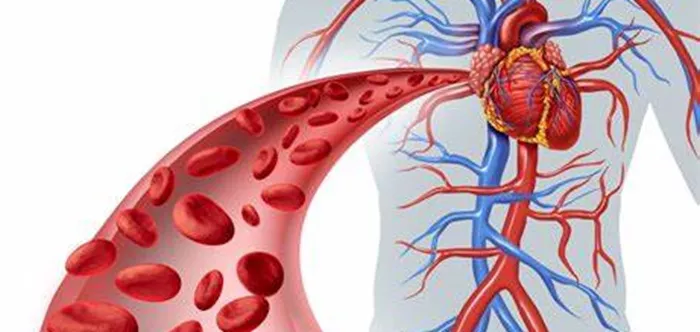The vascular system, comprising arteries, veins, and capillaries, is essential for transporting blood throughout the body.
This complex network not only delivers oxygen and nutrients to tissues but also carries away waste products and plays a critical role in regulating blood pressure and body temperature. Strengthening this vital system can enhance overall health, improve cardiovascular function, and reduce the risk of various diseases. Here, we delve into effective strategies for reinforcing vascular health.
Understanding Vascular Health
Before diving into how to strengthen the vascular system, it is crucial to understand its components and function. The vascular system includes all the body’s blood vessels and is a major component of the circulatory system, alongside the heart. The arteries carry oxygen-rich blood away from the heart, while veins return oxygen-depleted blood back to the heart. Capillaries, the smallest blood vessels, facilitate the exchange of oxygen, nutrients, carbon dioxide, and waste between blood and tissues.
Vascular health is influenced by several factors including genetics, lifestyle, and existing health conditions. Diseases such as hypertension, diabetes, and high cholesterol can damage blood vessels, leading to arteriosclerosis (hardening of the arteries) and atherosclerosis (narrowing of arteries due to plaque buildup).
SEE ALSO: What Can I Eat to Strengthen My Heart?
How to Strengthen The Vascular System
1. Maintain a Balanced Diet
A heart-healthy diet is essential for maintaining vascular health. Key components include:
Fruits and Vegetables: Rich in vitamins, minerals, and antioxidants, they help reduce inflammation and prevent damage to the vascular system.
Whole Grains: These contain fiber, which helps lower cholesterol and stabilize blood sugar levels.
Lean Proteins: Sources like fish, poultry, and legumes support tissue repair and are low in saturated fats.
Healthy Fats: Omega-3 fatty acids found in fish, nuts, and seeds are known for reducing inflammation and improving the health of blood vessels.
2. Regular Physical Activity
Exercise is vital in strengthening the vascular system. Activities such as walking, cycling, swimming, and jogging improve circulation and help maintain the elasticity of blood vessels. The American Heart Association recommends at least 150 minutes of moderate aerobic exercise or 75 minutes of vigorous exercise per week.
3. Manage Body Weight
Excess body weight puts additional strain on the heart and blood vessels. Maintaining a healthy weight through diet and exercise reduces the risk of vascular diseases and helps in the efficient functioning of the circulatory system.
4. Quit Smoking
Smoking is a major risk factor for the development of vascular diseases. Chemicals in tobacco damage the lining of blood vessels, leading to their narrowing and increasing the risk of plaque formation.
5. Control Blood Pressure and Cholesterol Levels
High blood pressure and high levels of LDL cholesterol can damage blood vessels, leading to heart disease and strokes.
Managing these through lifestyle changes and medication when necessary is crucial for vascular health.
6. Limit Alcohol Intake
While moderate alcohol consumption has been linked to some benefits in vascular health, excessive drinking can lead to adverse effects such as increased blood pressure and irregular heart rhythms.
7. Manage Stress
Chronic stress can lead to behaviors that negatively affect vascular health, such as poor dietary choices, smoking, and inactivity.
Techniques such as meditation, yoga, and regular exercise can help manage stress effectively.
8. Regular Health Screenings
Regular check-ups are important for early detection of vascular issues.
Blood pressure, cholesterol levels, and body mass index (BMI) should be monitored regularly, along with screenings for diabetes and other potential risk factors for vascular disease.
Supplements And Natural Remedies
While lifestyle changes are the cornerstone of maintaining vascular health, certain supplements and natural remedies can support these efforts:
Omega-3 Supplements: For those who do not consume enough omega-3 fatty acids through their diet, supplements can help.
Garlic: Studies have shown that garlic can help lower blood pressure and cholesterol levels, improving arterial health.
Green Tea: Rich in antioxidants, green tea can help reduce cholesterol and improve heart and vascular health.
Turmeric: Curcumin, the active ingredient in turmeric, has anti-inflammatory properties that benefit overall vascular health.
Conclusion
Strengthening the vascular system is a multifaceted approach that requires attention to diet, physical activity, and overall lifestyle habits.
By implementing the strategies outlined above, individuals can significantly improve their vascular health, thereby enhancing their quality of life and reducing the risk of cardiovascular diseases. Regular consultation with healthcare providers for personalized advice and routine check-ups can further aid in maintaining a robust vascular system. With commitment and consistency, maintaining the health of your blood vessels is an achievable goal that will pay dividends throughout your life.

